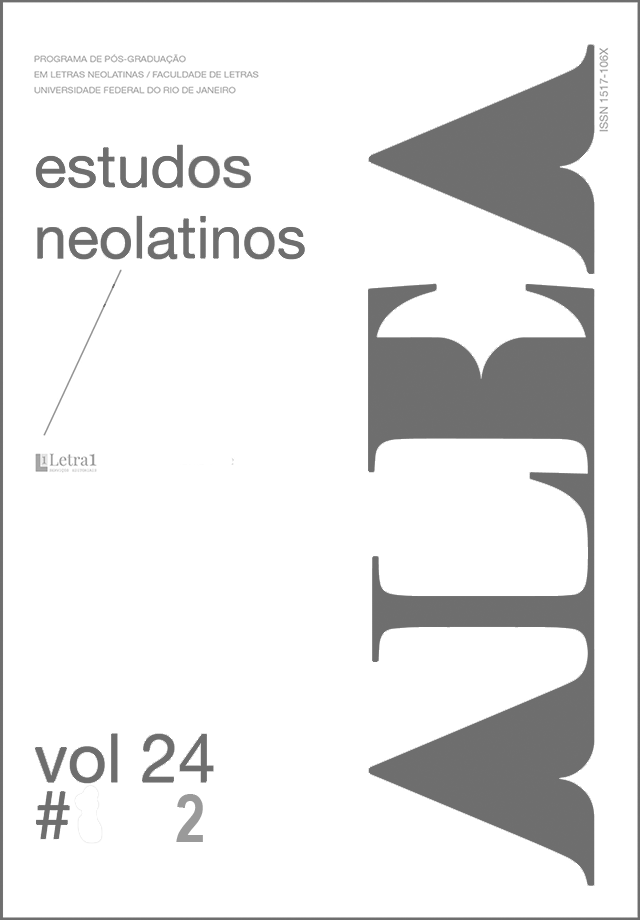O mito desvirtuado e a liberdade da imaginação de Antônio José da Silva
Abstract
Este artigo tem como tema as personagens principais da última peça do dramaturgo português Antônio José da Silva (1705-1739), Precipício de Faetonte (1738), com a qual por vezes se compara também as personagens de sua penúltima peça, As variedades de Proteu (1737). Por serem personagens mitológicas, rastreamos a construção das personagens Faetonte e Egéria na literatura clássica e ibérica predecessora, a fim de
identificar as raízes míticas aproveitadas por Antônio José em sua dramaturgia. Para comparação com a construção de Faetonte, buscamos também referências sobre Proteu, da peça homônima. Por se tratar de mitos muito esparsos na tradição greco-latina, vasculhamos autores antigos que figuravam tais personagens. Percebemos que, na comparação com os textos antigos e outras obras do dramaturgo, ele consegue uma liberdade criativa ao lidar com mitos pouco difundidos no imaginário português setecentista, o que também lhe permite maior flexibilidade nas preceptivas que regem
o gênero tragicômico, ao qual adere sua escrita.
Downloads
Published
Issue
Section
License
THE AUTHOR/S confirm/s his, her or their participation in all stages of work preparation: 1) Conception, project, bibliographical research, analysis and interpretation of data; 2) Writing and reviewing the manuscript; 3) Approval of the final version of the manuscript for publication; 4) Responsibility for all aspects of the work and guarantee for the accuracy and integrity of any part of the work. The submission of works implies the immediate cession, without onus, by all authors, of publication rights to the journal Alea, licensed under CC BY (https://creativecommons.org/licenses/by/4.0/). The authors are fully responsible for the content of the article and continue to hold all copyrights for subsequent publications of it, and should, if possible, include the reference to the first publication in the journal. Alea does not commit to returning received contributions. Authors of articles, reviews or translations will receive a copy of the journal.

